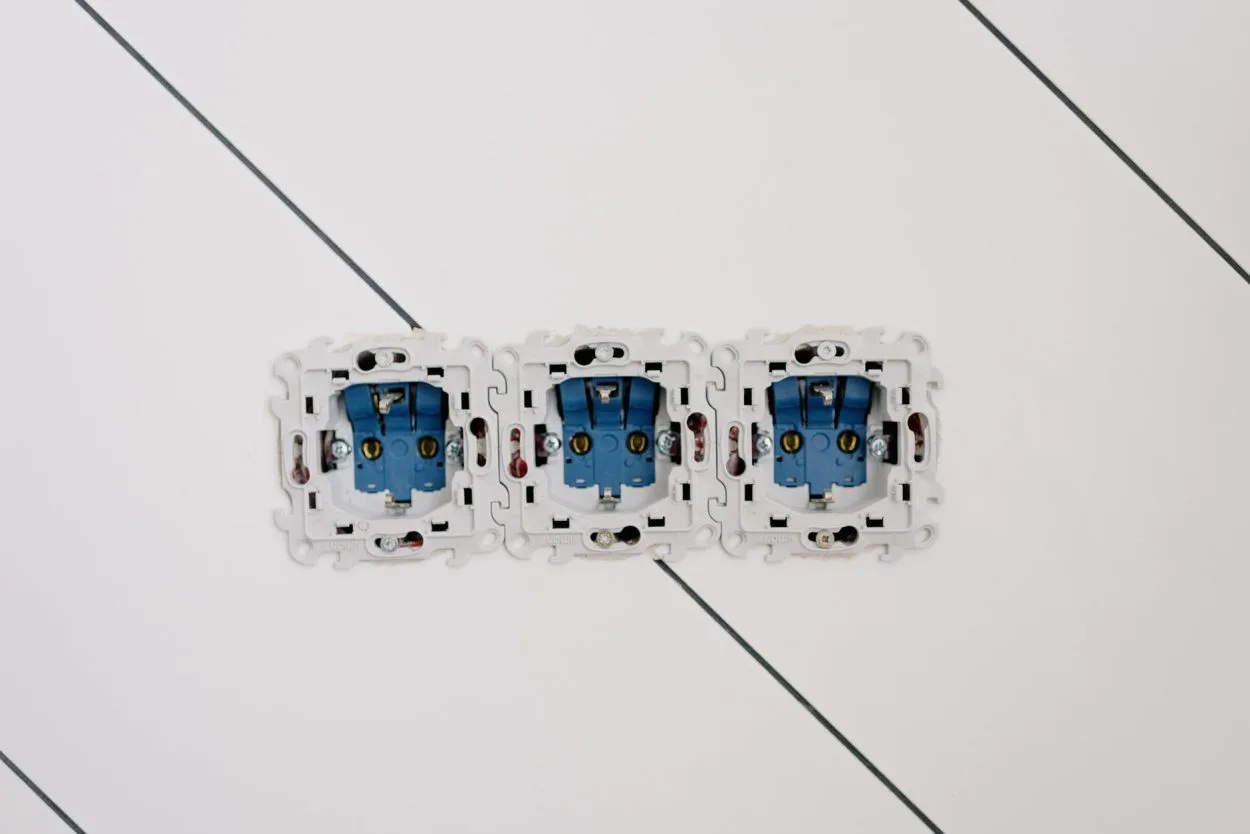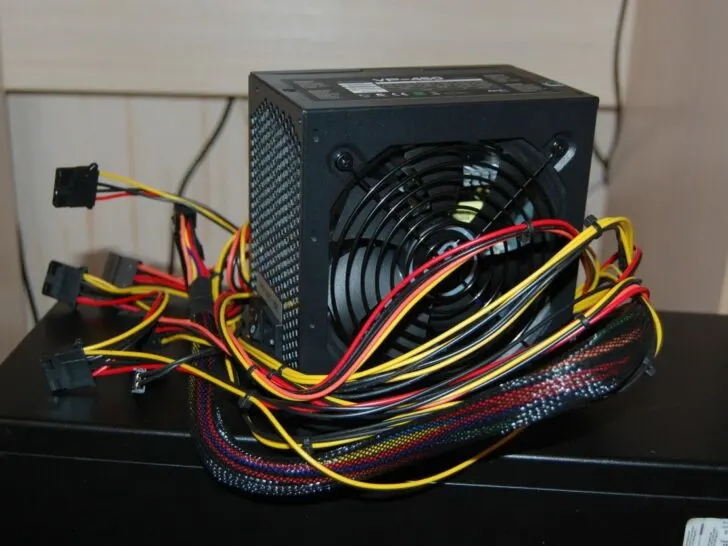Power supply units or PSU’s are the backbones of PC builds.
This unsung and often forgotten hero of a PC build is internal IT hardware components that convert the alternating high voltage AC into direct voltage DC. It makes sure your computer functions correctly.
The type or form factor of a power supply will tell you critical features about the unit, including its size and the parts it supports.
Today’s most power supplies available on the market are at least 80 Plus rating.
80 plus certification ensures that PSU performs at least 80 percent efficiency on maximum loads. it is further classified in sub-branding such as bronze, gold, titanium, silver, and platinum.
The difference between these ratings is efficiency: some possess higher efficiency at 20%, 50%, and 100% load. Gold and bronze are the most common ones.
Don’t know which one is best and quieter between gold or bronze? No worries!
In this article, I’ll help you understand the difference between the Gold and Bronze marks we often see on a PSU. And we will try to figure out the PSU that suits you the best.
Let’s dig in!
What is Power Supply Efficiency?
The efficiency of the power supply rate is based on the components divided by the wattage drawn from the wall socket.

For example, a 500-watt power supply with a 50% efficiency rating can draw 1000-watt output. The other 500-watt gets wasted as heat in the conversion process.
Another factor determining the power supply efficiency is the percentage of the rated load being outputted when PSUs are running around 50% load or 250W in this example.
Generally, the efficiency percentage starts at the lower mark. A PSU is more efficient when it is around 50 % load capacity. When the load reaches the 100% curve, it flattens and returns to the starting level again.
What does a Power Supply with an 80 Plus Rating signify?
The 80 plus rating indicates that the power supply is at least 80% efficient to 20%, 50%, and 100% load.
The efficiency factor of electricity equipment determines the performance of the appliances at different loads. A 500-watt PSU can surely give you good power at a 20 percent load. But what will happen at 60-70 or 80 percent load? The same PSU at that time may not be able to provide the same 500 watts.
So that means low rating PSU doesn’t work well at high loads compared to low loads. Low power and wattages can impact the devices and damage them.
That’s where 80 plus mark comes into the picture. It started as a voluntary program in 2004 to promote efficient energy for computers.
80 plus certification ensures that PSU performs at least 80 percent efficiency on maximum loads.
Let me simplify it for you.
A 500-watt 80 plus rated power supply unit can draw a maximum of 625-watt at 100% load.
It does more than just power your PC. Let’s look at the benefits of getting a high-quality PSU for your PC.
- It provides a stable flow of electricity
- It is cost-effective
- It gives reliability that PSUis working on 80 percent wattages
- It doesn’t waste energy
80 plus certified PSU are now widely available, and you should get one for your PC as well.
Watch this video below to learn more about 80 pus certification of PSU:
What do Bronze, Silver, Gold, Platinum, and Titanium ratings mean?
PSU 80 plus now comes with an efficiency rating. They come in least to most efficient ones like bronze, silver, gold, platinum, and titanium ratings.
The most common ones used in PC builds are bronze, silver, and gold.
And the titanium and platinum ratings are reserved for server PSUs and workstation PCs with high capacity PSUs.
Refer to the chart below for an overview of the efficiency rating of all PSUs.
| Loading | 80 plus | Gold | Bronze | Silver | Platinium | Titanium |
|---|---|---|---|---|---|---|
| 20% | 80% | 87% | 82% | 85% | 90% | 90% |
| 50% | 80% | 90% | 85% | 88% | 92% | 92% |
| 100% | 80% | 87% | 82% | 85% | 89% | 94% |
They go as bronze, silver, gold, platinum, and titanium from bottom to top.
Today we talk about Gold and Bronze.
Gold Rated PSU
Gold rating in simple meaning means that the PSU is rated for at least 87% efficiency at 20% load, 90% at 50% load, and 87% at 100% load.
Gold ones are marketed at the premium end of the market. They are:
- More reliable
- Perform better than Bronze
- Give best price/performance ratio
It’s a little more costly than Bronze, but you won’t want to settle anything less than Gold because of its efficiency and reliability.
So fork out a bit more cash for your PC, and it will be a good investment.
Bronze–Rated PSU
For the average PC user, bronze-rated PSU’s are more than enough.
They provide at least 80 percent efficiency at 20%, 50%, and 100% load.
Bronze stay consistent at 80% during underload, and it is:
- Affordable
- Long lifetime
- Reliable for mainstream PCs
So if you are an average PC user and don’t want to spend extra on PSU, then a bronze one is good for you.
The main difference between both will be the quality of the materials, the internal electronic design, heat generated, and its cost.
How efficient are Gold PSUs compared to Bronze?
An 80 plus Bronze ranked PSU has 82-85 percent efficiency. However, Gold-ranked PSU takes this few notches higher.
It has a 90% mark peak efficiency which is an incredible number. This also means that PSU only wastes 10 percent heat and uses 90 percent of power drawn.
Are Bronze PSUs quieter than Golds?
The answer will depend on various factors: and that includes the irregular or current supply workload you put into it.
Gold and silvers are much more stable than bronze ones, especially in inadequate electric distribution.
You don’t need to put extra cents on 80 plus gold just for noise. Watch out for other factors that might cause power disturbance.
All in all, for minimum efficacy, 80 plus bronze is good.
How to choose an efficiency rating for a power supply?
While choosing efficiency rate three main things, you should look out for:
- Local electricity rates
- Ambient temperatures
- Budget

If you live in a temperature climate area with low electricity prices, you can opt for an 80 Plus or 80 Plus Bronze power supply.
The efficiency doesn’t jump when you move to a higher rating. The quality of the model you are using matters the most.
Look for the manufacturer’s name and the authenticity you are buying from. It is always wise to check the power supply’s efficiency on the group websites that issue 80 plus certifications.
However, if you live in an area where the power supply is expensive, still go with an efficient power supply. Because overall cost you save on the most efficient power supply will be worth putting a high upfront price.
High rate PSU will work for you because the ultra-hot temperature outside will reduce the power supply’s efficiency. Less heart from the power supply also means less noise of its fan and less effort from your side to keep the PC warm.
While calculating the expected power supply bill, keep in mind that the wattage listed on the power supply is the DC power maximum potential amount.
So here there’s an example of how you can do it:
An 80 Plus 500W power supply would work out to 250W DC or 312.5W AC power at 50-percent load. Using that last number means 312.5 in this example when tabulating your electricity consumption.
You don’t need to spend more than your budget. Opt for a power supply with an efficiency that fits your need and situations, not for the race to maximize on high-end specs.
Does efficient PSU save money on power bills?
Yes! A more efficient PSU can save your money on the power bills. However, how much depends on the average power draw of your PC and the current local cost per kilowatt/hour.

If the power draw is higher, small changes in efficiency percentage will affect the overall cost. And if the kilowatt/hour cost is higher, the more differences efficiency it will take on your bill.
Conclusion
Efficient PSU means better reliability and longevity and better performance of your computer.
To put it briefly, if you’re on a tight budget, 80+ Bronze is still pretty good. However, 80+ Gold is more reliable and a better investment overall for futureproofing, and it will create less noise.
The most costly equipment of our PC depends on the PSU. I do not recommend anything less than 80 Plus, so make sure to look for this logo when shopping for your next PSU.
Basically, the efficiency of your power supply comes down to the amount of heat and power it generates. Lesser usually means better as it means lower electricity bills and a quitter PSU.
Other Articles
- Crying Obsidian VS Regular Obsidian (Their Uses)
- Are 9×19 and 9mm Luger any different from each other? (Types with details)
- What is the main difference between saying 1/1000 and 1:1000? (Query Solved)
- Comparing Vans Era to Vans Authentic (Detailed review)
To read a summarized version of this article, please visit this link here.

